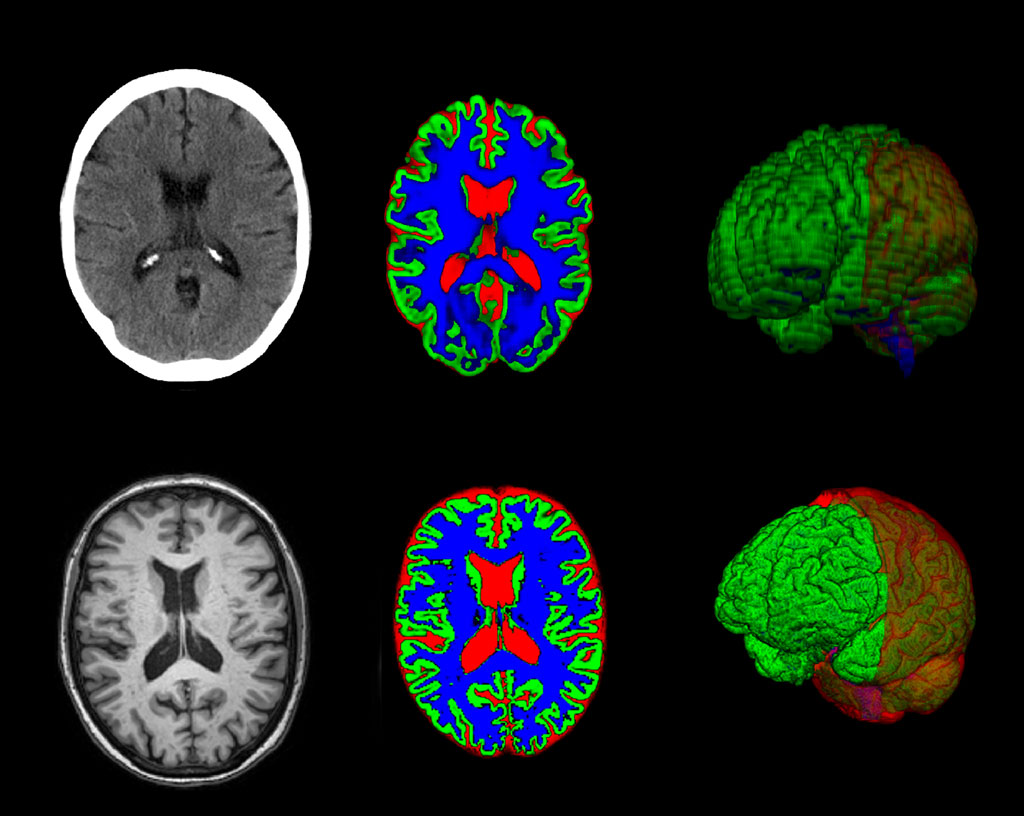Smarter CT Scans Could Achieve MRI Diagnostic Capabilities
Posted on 24 Oct 2023
Computed tomography (CT) is a widely used and relatively affordable imaging tool in healthcare, even in areas where other imaging options are scarce. However, when it comes to detailing subtle brain changes or alterations in the ventricular system, CT scans are usually less effective than magnetic resonance imaging (MRI). As a result, specialized imaging often has to be done in bigger hospitals equipped with advanced technology. But now, a novel approach allows CT scans to deliver information on par with MRI in specific situations. This new technique could improve diagnostic capabilities, especially for primary care providers dealing with dementia and other brain disorders.
A new software developed by researchers at the University of Gothenburg (Gothenburg, Sweden) can aid radiologists and other professionals in interpreting CT images. Developed through deep learning, a type of artificial intelligence, the software has been trained on imaging data from 1,117 individuals who had both CT and MRI scans. The software can translate the findings from MRI to CT scans of the same brain, enhancing the clinical application of AI algorithms. The technology aims to serve as a rapid and reliable decision-making tool that minimizes false negatives. It has the potential to refine primary care diagnostics, thereby streamlining the transition of patients to specialized care. In the study, the focus was mainly on healthy older adults and those suffering from different types of dementia.

The team is also exploring the software's application in diagnosing and monitoring normal pressure hydrocephalus (NPH), a condition that affects about 2% of people over the age of 65. NPH, in which fluid builds up in the cerebral ventricular system and results in neurological symptoms, is often challenging to diagnose and can be mistaken for other conditions, which means many cases may go undetected. The software, which has been in development for several years, is undergoing further improvement in collaboration with clinics in Sweden, the UK, and the US, along with a partnering company. This collaboration is essential for the technology to gain approval and integrate into healthcare systems.
“Our method generates diagnostically useful data from routine CT scans that, in some cases, is as good as an MRI scan performed in specialist healthcare,” said Michael Schöll, who led the work involved in the study. “The point is that this simple, quick method can provide much more information from examinations that are already carried out on a routine basis within primary care, but also in certain specialist healthcare investigations. In its initial stage, the method can support dementia diagnosis, however, it is also likely to have other applications within neuroradiology.”
“This is a major step forward for imaging diagnosis,” added Meera Srikrishna, a postdoctor at the University of Gothenburg. “It is now possible to measure the size of different structures or regions of the brain in a similar way to advanced analysis of MRI images. The software makes it possible to segment the brain’s constituent parts in the image and to measure its volume, even though the image quality is not as high with CT.”
Related Links:
University of Gothenburg














